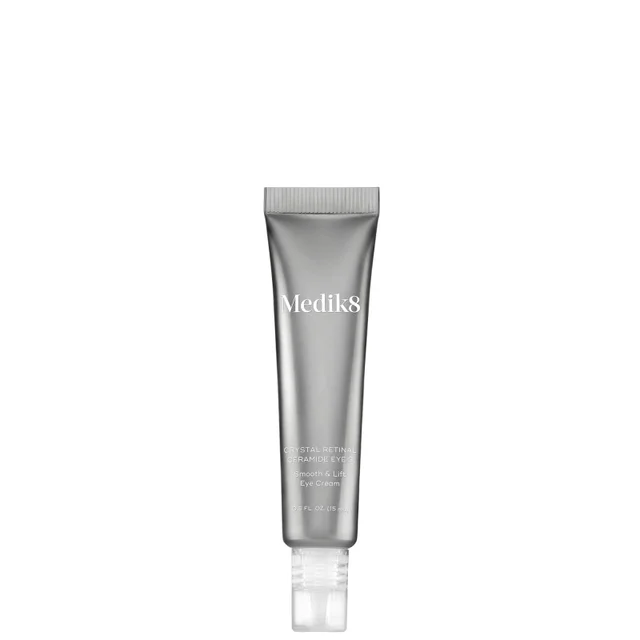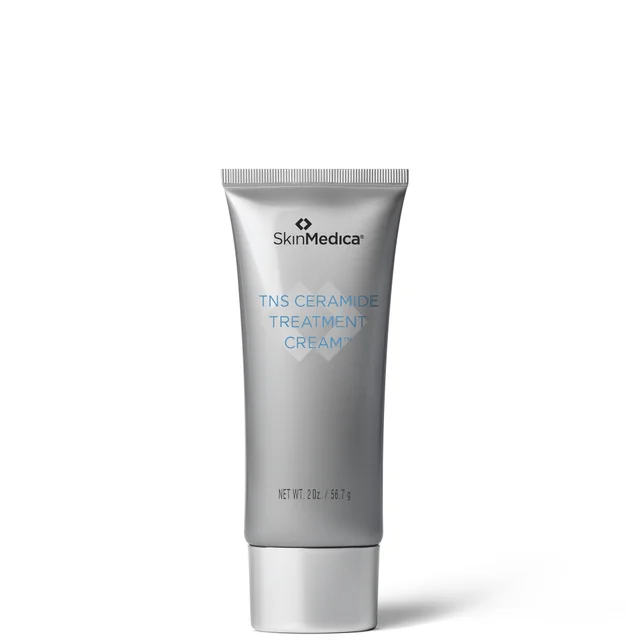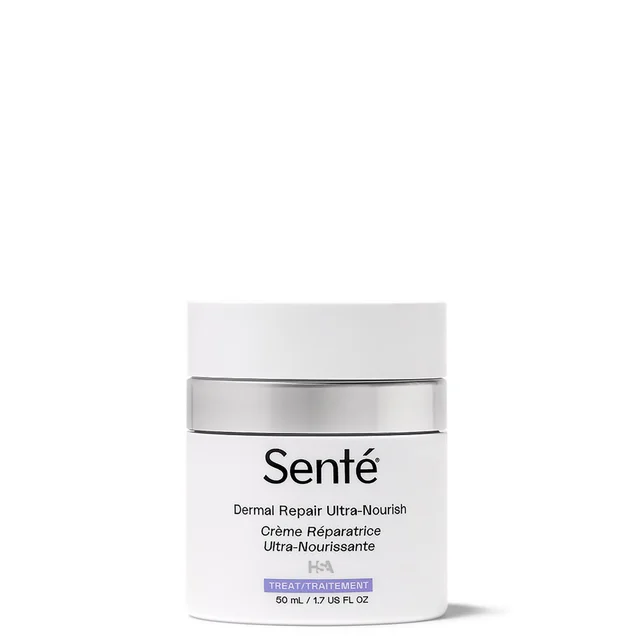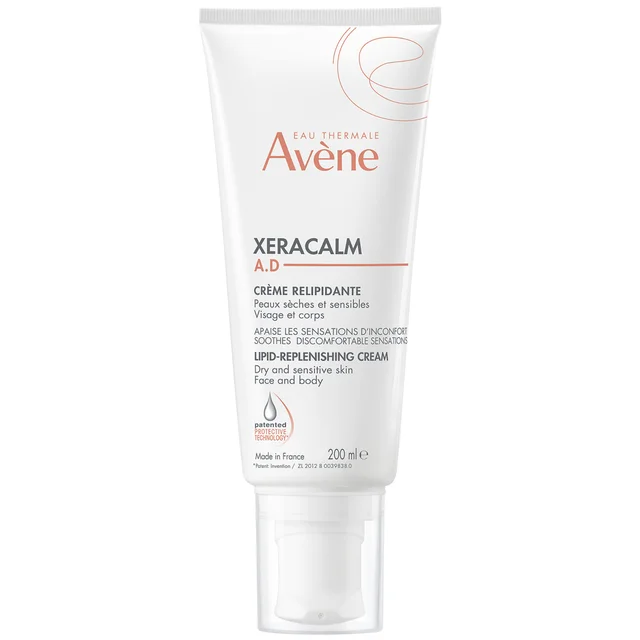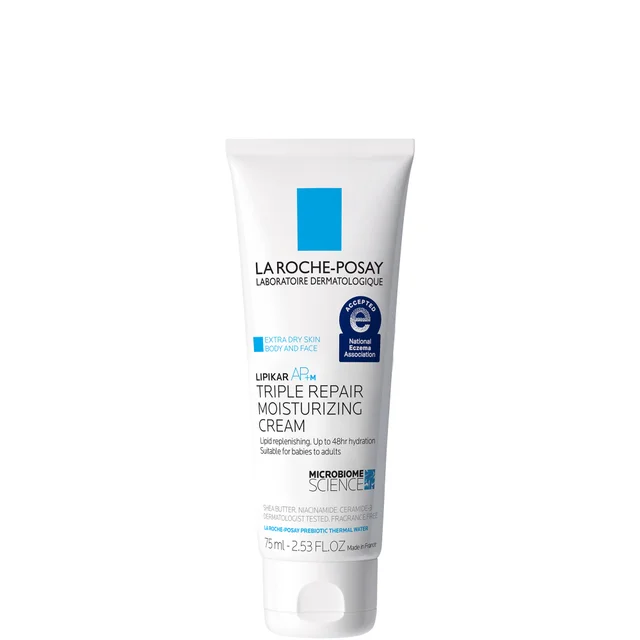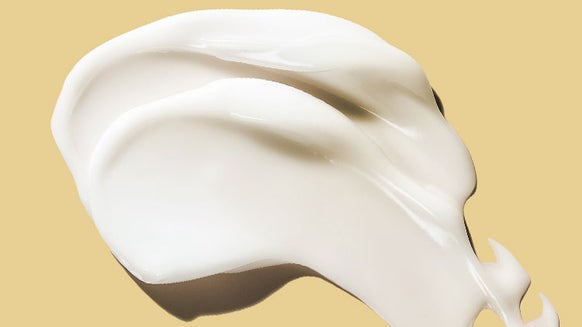The Ultimate Guide to Ceramides for Your Skin: A Derm Explains All
There’s no downplaying the importance of moisturizing to maintain healthy and radiant skin, but—as every skincare connoisseur would tell you—not all moisturizers are created equal. Fact is, it’s not enough to put the fate of your skin in the hands of the first product you see flaunting a moisturizer label. For starters, you’ll want moisturizing ingredients that go beyond adding moisture on the surface but also go hard at supporting a crucial component of your skin’s overall health: the skin barrier. And that’s where ceramides come in. So, what exactly are ceramides and what makes them a go-to ingredient for the pros? Below, a deep dive on ceramides for skin health and the top reasons that make them an absolute must in your everyday routine.
Meet the Expert
Dr. Connie Yang – Board-certified dermatologist, fellow of the American Academy of Dermatology, and member of Dermstore’s Medical Advisory Board
In This Article
- What Are Ceramides?
- What Are the Three Essential Ceramides for Skin?
- What Are the Key Benefits of Ceramides for the Skin?
- Ceramides vs Peptides
- Ceramides vs Hyaluronic Acid
- How to Use Ceramides in your Skin Care Routine
- Shop the Best Ceramide Skin Care Products
- FAQs
- The Bottom Line
What Are Ceramides?
We can’t talk about the role of ceramides in skin care without first understanding what the skin barrier is all about. As the outermost layer of the skin, the skin barrier acts as a natural armor for your skin and serves as its first line of defense against germs, irritants, and pollutants. It is essential in trapping moisture within the skin’s layers and preventing dryness and trans-epidermal water loss (TEWL), leaving you with a smooth, hydrated, and radiant complexion. In other words, the skin barrier makes sure all the icky things stay out and all the good things are kept in place.
So, what do ceramides do for the skin and where do they fit in this picture, you ask? Think of the skin barrier as a brick-and-mortar wall. Keratin-packed skin cells or corneocytes take on the role of bricks that form the structure of the barrier while being surrounded and held together by a mortar of lipids, composed of fatty acids, cholesterol, and—you guessed it—ceramides.
“Ceramides are naturally occurring lipid molecules that make up an essential part of the skin barrier to help retain moisture and protect against environmental aggressors,” explains Dermstore Advisory Board member and board-certified dermatologist Dr. Connie Yang. “Ceramides make up almost 50 percent of the lipids in the outermost layer of the skin (the stratum corneum) and are essential for skin barrier function. They help create a seal to prevent loss of water.”
Because of how prominent the role of ceramides is in maintaining the skin barrier, this also means that a decrease in your skin’s natural ceramides—which can happen with age and constant exposure to environmental stressors—can make your skin susceptible to dryness, dehydration, irritation, and inflammation caused by bacteria.
Related Article:Transform Your Skin: How to Repair Your Barrier Like a Pro
What Are the Three Essential Ceramides for Skin?
Ceramides come in different types and take on different jobs, from maintaining cell function to promoting brain development. They can either be natural—found in the outer layers of the skin, animals, and plants—or synthetic, which are more stable and are the ones often used in skincare products. In skincare, ceramides 1, 3, and 6-II have been shown to significantly affect the moisture levels of the skin. When the skin has a rich supply of these three ceramide types, it results in improved moisture retention and protection against external irritants.
What Are the Key Benefits of Ceramides for the Skin?
Although they’re not as buzzy as other must-have ingredients, ceramides are not at all new to the skincare game. But do ceramides actually work? Take it from Dr. Yang, who says, “Ceramides can help improve skin barrier function, moisture retention, and calm irritated or sensitive skin.” But it doesn’t end there. As an essential and naturally occurring molecule, ceramides are suitable for all skin types and play a crucial role in maintaining the skin’s health. Among their long list of benefits are:
- Improving and maintaining the health of skin cells
Repairing skin barrier damaged by over-exfoliation and inflammatory skin conditions - Creating a protective barrier that locks in and prevents moisture from escaping
- Protecting skin from irritants, allergens, pollutants, and germs
- Boosting skin’s resilience against environmental damage
- Enhancing the skin’s youthful appearance by keeping it plump, smooth, and supple
- Preventing dryness that triggers skin conditions like eczema, atopic dermatitis, and ichthyosis
Ceramides vs Peptides
Ceramides and peptides are both essential skincare ingredients, but they each play different roles in improving skin health. While ceramides are chiefly concerned with supporting and strengthening the skin barrier, peptides—short amino acid chains that serve as the building blocks of proteins—work by stimulating the production of the skin’s structural proteins like collagen and elastin to address wrinkles, fine lines, sagging skin, and other signs of aging. Together, these two ingredients complement each other’s benefits and create a powerhouse tandem to boost hydration, encourage repair, and slow down signs of aging.
Ceramides vs Hyaluronic Acid
When using two or more skincare ingredients together, synergy is a must. You’ll want ingredients that support, enhance, and build on each other’s benefits—and that’s exactly the case with hyaluronic acid and ceramides.
“Hyaluronic acid is a humectant, meaning it functions by drawing in moisture and helping skin appear more hydrated and plump,” explains Dr. Yang. “Ceramides focus on preventing water loss by sealing in moisture. They replenish the skin barrier to help keep hydration from escaping, promoting long-term retention rather than immediate hydration.”
When used together, ceramides make sure that moisture drawn by hyaluronic acid stays locked in longer and enhances the plumping, smoothing, and glowing effect.
How to Use Ceramides in your Skin Care Routine
“Ceramides are often found in moisturizers and should be layered on top of hydrating products like serums and toners. The ceramides will help seal in the moisture delivered by these products,” says Dr. Yang. Additionally, ceramides are best used in combination with other hydrating, protective, and nourishing ingredients to boost benefits and reap maximum results. “You should pair ceramides with ingredients like hyaluronic acid and glycerin to improve hydration and niacinamide to support the skin barrier and reduce inflammation,” she adds. These include peptides to enhance anti-aging benefits, hydration, and skin resilience as well as antioxidants that protect the skin from environmental damage.
Shop the Best Ceramide Skin Care Products
If you’re looking to reap the skin care benefits of ceramides, you’ve come to the right place. We’ve rounded up the best skin care products formulated with ceramides for all your needs, below.
1. Medik8 Crystal Retinal Ceramide Eye Serum - 3
For wide-awake, youthful-looking, and brighter eyes, reach for this ceramides-packed serum that’s also powered by a highly advanced form of vitamin A that works up to 11 times faster than classic retinols.
Key Ingredients: 0.03 percent Retinaldehyde, Ceramides, Hyaluronic Acid
Skin Type: All skin types
Skin Benefits: Plumps delicate eye area skin; improves eye contours, signs of aging, crow’s feet, and sagging skin; non-irritating and sensitive skin-friendly
Beauty Insider Tip: This variation is best for new retinoid users who want to start low and prep their skin for stronger retinoids. For more advanced users, the Crystal Retinal Ceramide Eye Serum also comes in 0.06 and 0.1 percent strengths.
2. SkinMedica TNS Ceramide Treatment Cream
Need an answer for your dry skin’s cry for help? This super soothing treatment cream is formulated to repair, nourish, and protect dry, sensitive, and damaged skin. All thanks to a rejuvenating formula that comes packed with growth factors, peptides, and ceramides that not only boosts the skin’s hydration but also targets noticeable signs of aging.
Key Ingredients: Palmitoyl Oligopeptide, Human Fibroblast Conditioned Media (TNS®), Hydroxypropyl Bispalmitamide MEA (Ceramide)
Skin Type: Dry, Sensitive
Skin Benefits: Improves and rebalances moisture, supports skin barrier
Beauty Insider Tip: With its extra-nourishing and gentle formula, this moisturizer is a great addition to your post-procedure skincare routine.
3. SENTÉ Dermal Repair UltraNourish
Give your skin the ultimate TLC with this lipids-replenishing face cream that encourages repair and mimics the skin’s own epidermal lipids. With its super nourishing formula, it’s the perfect treat for skin that’s feeling extra dry and sensitive—it boosts hydration, restores the skin barrier, and calms irritation while refining the look of fine lines and wrinkles.
Key Ingredients: Heparan Sulfate Analog (HSA), Lipid Blend
Skin Type: All skin types, including sensitive skin
Skin Benefits: Delivers long-lasting hydration; improves fine lines, wrinkles, tone, and texture; calms redness and inflammation
Beauty Insider Tip: This derm-tested face cream is also non-comedogenic and hypoallergenic, making it ideal for sensitive skin.
4. Avène XeraCalm A.D Lipid-Replenishing Cream
This rich cream has earned the nod of the National Eczema Association for its ultra-gentle formula that soothes, moisturizes, and nourishes irritated, sensitive, and eczema-prone skin.
Key Ingredients: Patented I-Modulia®, Cer-Omega, Avene Thermal Spring Water
Skin Type: All skin types, including sensitive and eczema-prone skin
Skin Benefits: Calms itching and irritation, delivers hydration, restores skin barrier
Beauty Insider Tip: Twice daily, apply this cream on the face or areas of the body that needs extra soothing and comfort from itching, dryness, and irritation.
5. La Roche-Posay Lipikar Balm AP+ M
This triple-acting body moisturizer tackles dry and rough skin while delivering up to 48 hours of hydration, rebalancing the skin’s microbiome, and repairing a compromised skin barrier.
Key Ingredients: La Roche-Posay Prebiotic Thermal Water, Ceramide-3, Shea Butter, Niacinamide, Glycerin
Skin Type: All skin types
Skin Benefits: Provides long-lasting hydration; restores skin’s essential lipids; improves rough and dry skin; rebalances skin microbiome
Beauty Insider Tip: Accepted by the National Eczema Association, this body cream’s super gentle formula is safe for the whole family—including babies as young as two weeks.
6. SkinCeuticals Replenishing Cleanser
There’s no better way to kick off your skincare routine than with this potent yet gentle face wash that rids your skin of all impurities without over-drying or stripping your skin of its natural oils.
Key Ingredients: Ceramide Complex (Ceramide and Glycerin), Essential Oils (Lavender, Cleary Sage, Orange, Rosemary Leaf)
Skin Type: Normal, Dry, Oily, and Combination Skin
Skin Benefits: Deeply cleanses without stripping moisture, removes hard-to-budge makeup
Beauty Insider Tip: Use this cleanser morning and night to thoroughly purify and cleanse skin.
FAQs
Are Ceramides Safe for Acne-Prone Skin?
Absolutely! Ceramides are, in fact, one of the best ingredients for acne-prone skin because their barrier-restoring and moisturizing properties can be beneficial for skin that’s experiencing dryness from acne-treatments.
Why Are Ceramides Different Than Other Moisturizers?
What makes ceramides different from other moisturizing ingredients is the fact that these naturally occurring lipid molecules don’t just add moisture to the skin’s surface—they work to lock in and extend hydration while strengthening the skin barrier’s defenses against irritants, pollutants, bacteria, and environmental damage.
Can Ceramides Help Reduce Fine Lines and Wrinkles?
Yes, they do! We know that dry skin is more susceptible to premature skin aging, and ceramides prevent this by boosting and maintaining the skin’s hydration and ensuring the skin barrier stays strong and intact. This results in smoother, plumper, and younger-looking skin.
Which is Better, Ceramides or Retinol?
Why choose one when you can use both ingredients together? Retinol is known for its superb anti-aging benefits and works by hastening cell turnover and stimulating collagen production. Ceramides, on the other hand, are all about enhancing and sealing in hydration while supporting the skin barrier. These two ingredients work like a dream together because ceramides provide a soothing and nourishing effect that helps lessen retinol-related reactions like redness, dryness, and irritation.
The Bottom Line
Ceramides are naturally occurring lipids that play a crucial role in sealing in moisture, strengthening and maintaining the skin barrier, and protecting the skin from environmental irritants. However, factors like aging can cause the body’s natural production of ceramides to dwindle, which can lead to dryness and compromise the integrity of the skin barrier. To counter this, opt for moisturizing skincare products that are enriched with ceramides to help restore healthy barrier function and improve hydration. For best results, make sure to use ceramides with other equally nourishing ingredients like hyaluronic acid, niacinamide, and peptides!

Janeca Racho is a Journalism graduate with over 15 years of writing experience. After getting her start in public relations and advertising, she made the switch to freelance writing and began working for various lifestyle, fashion, and travel brands. Her love for all things skincare has led her to beauty reporting and research for the last ten years. Writing for several hair and beauty blogs, she reports on anti-aging staples, trending brands and products, must-have ingredients, and health and wellness.
Related Posts

How Everyday Stressors Can Cause Skin Aging—and What You Can Do About It

